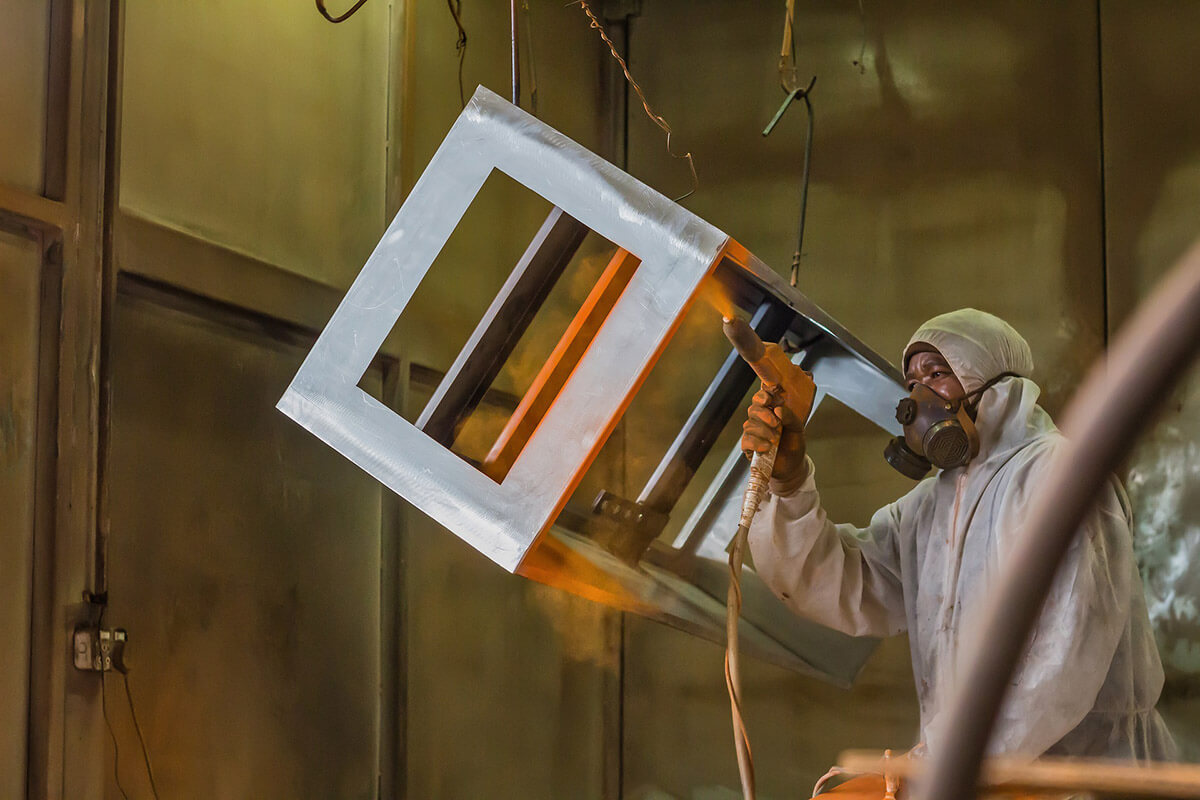
When it comes to buying a marquee, it is important to know the difference between materials used, so that you purchase the right product for your needs. The most common materials used in the manufacture of marquee frames are: powder coated steel, and aluminium.
Many people assume that steel is better, because it is one of the strongest materials you can use. While this may be true, there are advantages and disadvantages to steel. To help you decide if steel is right for you, we will break down the components used to make powder coated steel, and point out the advantages and disadvantages of using a steel based marquee.
What is steel?
Steel is an alloy (mixture) of iron and carbon. It has a high tensile strength, it’s low cost, and it is used in components for buildings, tools, trains, motor vehicles, and many household appliances. Steel has been found in archaeological dig sites which date back nearly 4000 years, so it’s been around for a long time!
What is powder coating?
Powder Coating is a type of coating often used in automotive applications, and even things like household appliances. This coating is applied to the surface as a dry powder using an electrostatic charge, and then cured using heat. It is fantastic as there are no solvents, and it releases very little compounds into the atmosphere compared to solvent based paints. It is also rather hard wearing if applied and cured correctly, and can be found in a wide range of colours. While it may appear purely cosmetic, it’s main purpose is to protect alloys such as steel, from rust.
How do you recognise it?
Steel is very easy to recognise; a majority of steel alloys are also magnetic. You can simply test this by holding a magnet to the marquee frame. If it’s something which has seen some use, you may also notice rust or oxidation on exposed surfaces.
Powder coating is applied in a thick powdery coat and smooths out once baked, giving everything a rounded edge; think of it like ceramic pottery glazing. An easy way to tell is that powder coating may have a glossy and smooth candy-like shell. If it appears to be a coloured metal surface, and you can still see and potentially feel the texture or grain of the material, it is likely anodized.
Is it any good for a marquee?
Steel is a great product for a large building, and for the chassis of your car. It is also considerably cheaper compared to aluminium. For a portable marquee however, these need to be strong, yet light enough for you to actually carry around. Steel might have a higher strength to weight ratio, but the compromise is that the volume of steel needed to make a quality, durable marquee, will make it very heavy. This detracts from the convenience of having a portable marquee.
Being an outdoor product, steel marquees will rust when it comes in contact with moisture. We use aluminium in our frames with stainless steel hardware, so there is no chance of this happening and thus powder coating is not required. It may be all well and good to protect the external surfaces, though water/moisture along with sea spray can get inside the frame and cause it to rust from the inside out.
Powder coating will eventually break down under exposure to UV, which will again expose the steel to rust.
If you are after a durable marquee, powder coated marquees will not provide a long lasting solution. Powder Coated steel can also impact tolerances between the frame and the sliding connectors, which increases friction and subsequently makes the marquee harder to open.
Pros
Steel
- Strength
- About three times cheaper compared to aluminium
- Can be recycled
Powder Coating
- Looks good
- Can be very durable if applied correctly.
- Lots of colours available
- Coating can be much thicker than painting, meaning there are no runs in the finished product.
Cons
Steel
- Weight (a quality steel marquee is VERY heavy, a light weight steel marquee is not durable)
- Susceptible to rust and corrosion
Powder Coating
- Wears and can chip off (exposing the steel to rust and corrosion)
- Thick coatings reduce tolerances in the marquee frame increasing friction, making it difficult to set up.
- Breaks down under UV ray exposure
- Expensive to do yourself
- Cannot be applied to internal hard to reach surfaces (i.e. inside a marquee leg).
- Difficult to touch up and maintain aesthetic appearances (i.e. sanding back touch up areas and getting a fresh coat to blend in)
Summary
Put simply, powder coated steel marquees are designed to give a bit of a longer life to light weight steel marquees. Steel is always susceptible to rust and corrosion, which is why it works better as a thicker framework. Even the powder coating itself will break down in the sun over time, so it is not a permanent solution to protect steel.
In some cases, marquee manufacturers may produce a heavy steel frame and use a thinner fabric for the roof to save on weight. It really defeats the purpose of having a durable marquee, if you have to compromise one material for another.
Portable marquees are made to be as the name says, portable. Steel can definitely do a good job for a marquee, but if the frame is too heavy to carry, then it doesn’t make it a convenient or ideal portable solution. You need to ask yourself, “Do I want a steel marquee because it is the strongest metal my money can buy?” or “Do I want a portable, easy-to-use marquee that is durable, and will last me a long time?”. Steel may be the superior product in other industries, but for portable marquees, aluminium is king.
